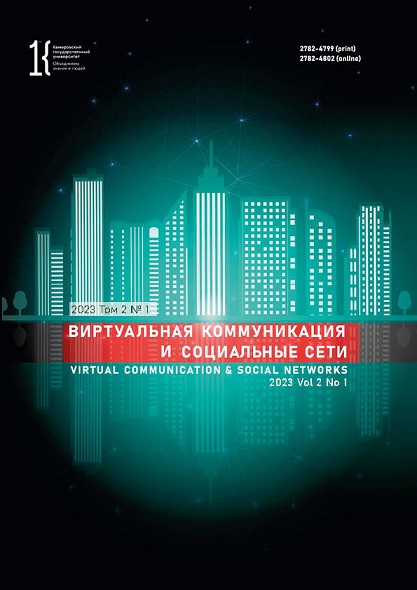Kemerovo, Russian Federation
Social networks can increase motivation in foreign language learners. The article describes an experiment in remote teaching during the COVID-19 epidemic of 2020–2022. The author had to look for new online methods of teaching German to university students and used the Vkontakte social net to organize the academic process. The platform proved to be an efficient tool in teaching students of the Institute of Philology, Foreign Languages, and Media Communications, Kemerovo State University (Kemerovo, Russia). The article also describes the processes that make it possible to assess the degree of motivation, the involvement of students in the academic process, the effectiveness of the task, the activity of students, etc. VKontakte proved to be an effective motivation tool that helps students of Philology and Translation Studies to master German as a second foreign language.
social networks, motivation, training, foreign language, German, Vkontakte social network, academic process, educational task
1. Aleksanyan A. V. Value analysis of communities in social networks (on the example of "Vkontakte"). Perm Financial Review, 2021, (1): 73-94. (In Russ.) EDN: https://elibrary.ru/GZIBOX
2. Ben R. S. Methods of using social networks in teaching Russian as a foreign language to B1 Tunisian philology students: Cand. Ed. Sci. Diss. Abstr. Moscow, 2014, 22. (In Russ.) EDN: https://elibrary.ru/ZPKOBT
3. Doronina P. D. Adolescent use of language in social networks. The Bulletin of Ryazan State University named for S. A. Yesenin, 2017, (3): 136-143. (In Russ.) EDN: https://elibrary.ru/ZGCJNJ
4. Kudrinskaya L. A., Klepinina Yu. V. Social networks as an external factor influencing the employment motivation of working and non-working persons with disabilities. Vestnik Nizhegorodskogo universiteta im. N. I. Lobachevskogo. Seriya: Sotsial'nye nauki, 2019, (3): 59-67. (In Russ.) EDN: https://elibrary.ru/XQWITQ
5. Lasukova N. A., Rabkina N. V. Social nets and messengers in teaching foreign languages. Virtual Communication and Social Networks, 2022, 1(1): 8-14. (In Russ.) EDN: https://elibrary.ru/PYDVEP
6. Podlasyy I. P. Pedagogy: 100 answers to 100 questions. Moscow: Vlados-Press, 2006, 365. (In Russ.) EDN: https://elibrary.ru/RBBVRH
7. Ryadovykh N. A. Category of tonality explicated in the texts of virtual genre. Virtual Communication and Social Networks, 2022, 1(4): 203-207. (In Russ.) https://doi.org/10.21603/2782-4799-2022-1-4-203-207
8. Khrushcheva L. B., Tserkovnaya K. A. Social networks: positive and negative aspects of the social network routine. Cloud and innovative technologies in service and education: Proc. 3rd Intern. Conf. of Teachers, Young Scientists, Postgraduates, and Students, Kazan, 26 Apr 2017. Kazan: Pechat'-servis XXI vek, 2017, 42-45. (In Russ.) EDN: https://elibrary.ru/YOUMFT
9. Shvydkaya A. N. The possible use of social networks for motivation of teenagers in teaching foreign languages. Bulletin of Humanities, ed. board: Zyabreva S. E. et. al. Gorlovka: GIFL, 2021, iss. 13, 207-213. (In Russ.) EDN: https://elibrary.ru/XWZOPM















